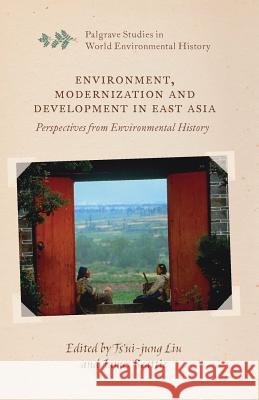Environment, Modernization and Development in East Asia: Perspectives from Environmental History » książka
topmenu
Environment, Modernization and Development in East Asia: Perspectives from Environmental History
ISBN-13: 9781349958498 / Angielski / Miękka / 2018 / 301 str.
Environment, Modernization and Development in East Asia: Perspectives from Environmental History
ISBN-13: 9781349958498 / Angielski / Miękka / 2018 / 301 str.
cena 201,72
(netto: 192,11 VAT: 5%)
Najniższa cena z 30 dni: 192,74
(netto: 192,11 VAT: 5%)
Najniższa cena z 30 dni: 192,74
Termin realizacji zamówienia:
ok. 22 dni roboczych.
ok. 22 dni roboczych.
Darmowa dostawa!
Kategorie BISAC:
Wydawca:
Palgrave MacMillan
Seria wydawnicza:
Język:
Angielski
ISBN-13:
9781349958498
Rok wydania:
2018
Wydanie:
2016
Ilość stron:
301
Waga:
0.37 kg
Wymiary:
21.59 x 13.97 x 1.7
Oprawa:
Miękka
Wolumenów:
01
Dodatkowe informacje:
Wydanie ilustrowane











